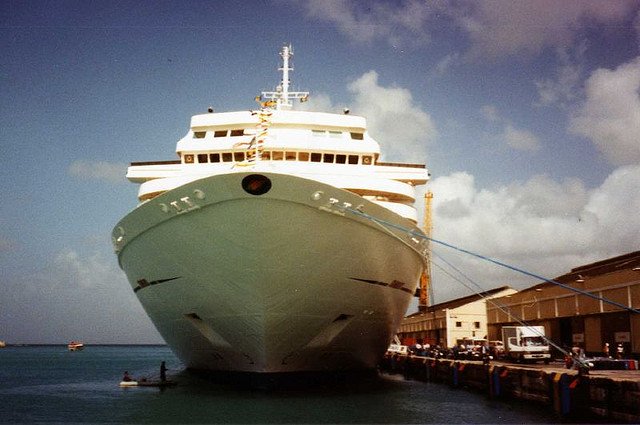- By CycreekPestAdmin
- In COMMERCIAL, SHIPPING
- Tags commercial, shipping
The shipping industry provides an excellent vehicle for pests to live and thrive. There are numerous places aboard ships that provide harborage for pests such as rodents, cockroaches, bedbugs, mosquitoes and fleas. Ships may also transport pests to countries where they have no natural enemies. Thus upsetting the natural eco-system.
There are dangers that are caused by infested ships aside from the introduction of invasive species. Close accommodations encourage the spread of pest-related diseases. Scabies is a disease caused by mites, or typhus that gets passed on by lice, as well as many diseases passed on by rodents or ingesting contaminated food can infect the entire ship population.
The ability to rid a ship of pests creates certain problems. Because ships are in the ports for very short time to be serviced and stocked, early identification of pests is very important to prevent larger infestations. On board monitoring is especially important. This all part of an Integrated Pest Management program which will be put in place by Cypress Creek Pest Control.
Pests gain access to the ships a variety of ways:
- Food and supplies being loaded onto the ship may be infested from substandard practices of suppliers.
- Pest can enter through open spaces such as ramps, doors, portholes and ropes securing the ship to the pier.
- Passengers and crews’ luggage can introduce pests such as bedbugs onto the ship.
- Pests may also enter on humans and pose a risk of infecting other passengers and crew.
- Birds that land on the ship while in port or in transit can carry pests onto a ship as well.
- Livestock that may be transported via ship may also introduce pests.
Once onboard the ship, there are many places that provide harborage for these pests. Ships contain many inaccessible ceilings, ducts, voids and walls. Standing water provides breeding sites and water sources for many pests such as mosquitoes, rats and mice.
Diseases Spread By Pests
The close accommodations encourages the transmission of pest related diseases to the passengers and crew. Cockroaches can spread disease via their bodies and droppings. They can carry dysentery, gastro-enteritis, typhoid and food poisoning organisms, which they spread when coming into contact with our food. Cockroaches are able to breed rapidly. They are also highly resilient to treatment. Like rats, it is important that cockroaches are controlled on board ships in order to prevent the spread of disease.
Rats and mice are known to spread more than 35 diseases either directly through handling, scratches and bites, or indirectly through fleas, ticks or mites that have fed on an infected host. Rodent urine is responsible for the spread of hantavirus and leptospirosis.
Fleas aboard the ship can transmit diseases such as plague, tularaemia, myxomatosis.
Mosquitoes transmit diseases such as malaria as well as viruses such as denge fever and yellow fever to name a few. Aside from being annoying they can spread their diseases not only to passengers on the ship but to entire communities upon their arrival to new destinations.
It is important to monitor and act quickly when pests are discovered. Failure to do so can result in lost revenue from passengers, contamination of cargo foodstuffs, and damage to a shipping line’s reputation.



